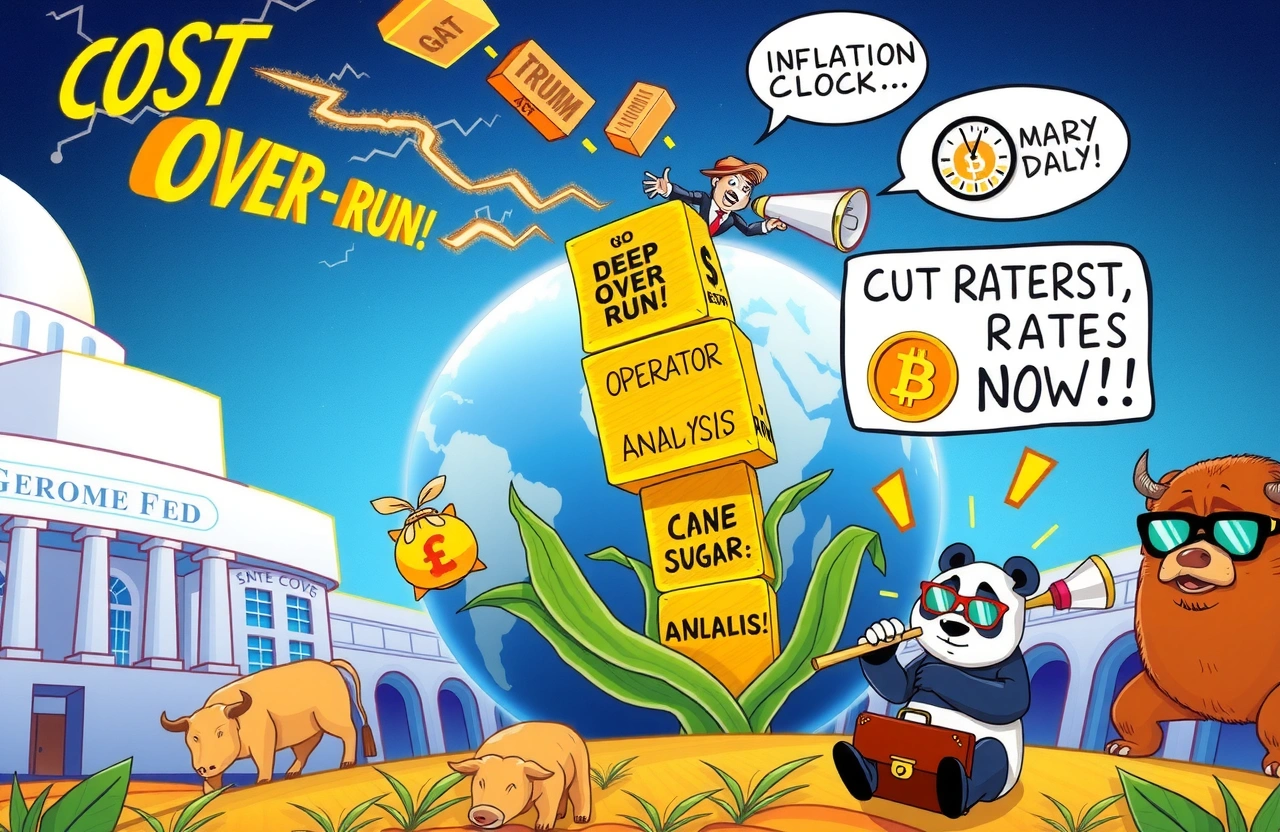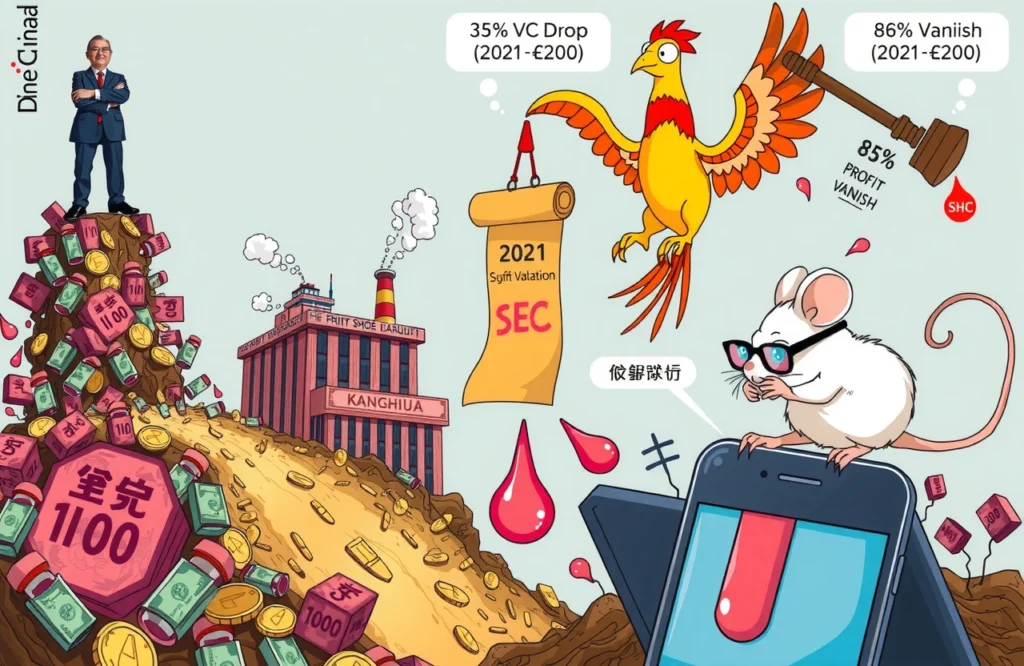Critical Global Economic Shifts Unfold
Global markets face converging seismic events: Federal Reserve Chair Jerome Powell issues a rare defense against White House criticism, while OpenAI deploys revolutionary ChatGPT Agent technology capable of autonomous action. These developments occur as landmark stablecoin legislation clears Congress, President Trump moves to open retirement accounts to cryptocurrency investments, and Coca-Cola faces economic repercussions from sweetener changes. Understanding these economic stability and AI breakthroughs provides indispensable insight into central bank pressures, technological disruption points, and urgent regulatory shifts reshaping investment frontiers.
Key Developments Covered
- Powell’s detailed response defending Fed oversight amid White House budget office criticism
- Analysis of OpenAI’s ChatGPT Agent breakthrough merging Operator tools, Deep Research and conversational AI
- Implications of stablecoin bill reaching Trump’s desk after 308-122 House vote
- Economic impact of Coca-Cola’s shift to cane sugar on US corn farmers
- Mary Daly’s interest rate warning: “If we await 2% inflation before acting, we’ve lost”
Powell Delivers Robust Defense Against White House Criticism
Federal Reserve Chair Jerome Powell issued a detailed rebuttal to White House criticism regarding the $2.5 billion Fed headquarters renovation project. Office of Management and Budget director Russ Vought had denounced the renovation as “shocking” amid cost overruns, prompting Trump’s anger. Powell’s Thursday letter countered that the renovation underwent “strict oversight by Fed governors and inspectors” from inception. Remarkably, the Fed opted for voluntary collaboration with National Capital Planning Commission despite exemption requirements—demonstrating institutional commitment to transparency.
The Fed chief emphasized inevitable structural upgrades: “Both buildings require major repairs involving asbestos/lead abatement plus full replacement of outdated electrical, plumbing, HVAC and fire safety systems.” Responding to budget concerns, Powell noted filed modifications eliminated non-essential elements “to minimize delays and cost escalations” without requiring re-submission. This high-stakes bureaucratic confrontation reveals the fragility of economic stability and AI breakthroughs when political tensions escalate.
Congress Clears Landmark Stablecoin Legislation
America’s cryptocurrency framework cleared a decisive hurdle with 308-122 House approval of the Guiding and Establishing National Innovation for United States Stablecoins (GENIUS) Act. This follows June Senate endorsement, positioning it for presidential signature. The bipartisan vote saw 102 Democrats crossing party lines—a statistical anomaly reflecting urgent regulatory alignment.
Key GENIUS Act Provisions
- Reserve asset requirement frameworks ensuring 1:1 backing
- Cybersecurity standard mandates for issuers
- Third-party audit frequency specifications
- Interagency coordination protocols between SEC/CFTC
Industry analysts anticipate streamlined entry for PayPal USD (PYUSD) and other dollar-pegged assets, potentially accelerating institutional adoption critical for maintaining economic stability.
Crypto Revolution Reaches Retirement Accounts
The Trump administration finalized executive orders enabling cryptocurrency investments within $9 trillion retirement markets—impending 401(k) diversification options include Bitcoin ETFs, gold, private equity and infrastructure funds. The directives instruct regulators to “investigate barriers to alternative investment inclusion” within professionally managed retirement funds.
This tectonic shift fundamentally reconfigures long-term savings management paradigms. Goldman Sachs analyses suggest initial cryptocurrency allocations averaging 2-5% could inject $180-$450 billion into digital assets—establishing new institutional validator cohorts while introducing novel volatility vectors into retirement economics.
Fed Official Issues Urgent Rate Cut Warning
San Francisco Fed President Mary Daly amplified pressure for imminent monetary easing during Thursday’s Rocky Mountain Economic Summit. Signaling concern over policy rigidity, she declared: “We cannot perpetually delay action while awaiting perfect conditions.” Daly framed emerging threats contextually:
“Businesses bear ongoing tariff impacts yet consumers sustain spending—this creates maneuvering space. However, awaiting 2% inflation would yield unnecessary economic damage.” Her advocacy for two 2024 cuts parallels World Bank cautions about cascading defaults should borrowing costs persist at current levels.
OpenAI Launches AI Agent Revolution
OpenAI fundamentally redefined artificial intelligence capabilities through its ChatGPT Agent launch. This integrated system merges three breakthrough technologies:
- Operator: Web interaction/API integration capacities
- Deep Research: Autonomous investigation tools
- ChatGPT: Natural language processing foundation
The unification enables independent task execution—selecting optimal tools dynamically without step-by-step programming. Crucially, ChatGPT transforms from conversational partner to field-operative completing multifaceted assignments including:
- Market analysis reports compiling disparate datasets
- Supply chain disruption contingency planning
- Real-time regulatory compliance auditing
These economic stability and AI breakthroughs position OpenAI as the undisputed enterprise process automation leader.
Coca-Cola Pivot Threatens U.S. Agricultural Markets
President Trump announced Coca-Cola’s commitment to replace high-fructose corn syrup with cane sugar across U.S. products—a landmark victory for sugar lobbyists but potential catastrophe for Midwest corn producers. Industry analysts immediately flagged implementation hurdles:
- Reformulation requires overhauling century-old production lines
- Cane sugar costs $0.29/lb versus corn syrup’s $0.14/lb
- Transportation/logistics disruptions during transition
The American Farm Bureau Federation warns of potential 15% revenue declines across corn belt regions already suffering trade war impacts—proving how singular corporate decisions can destabilize agricultural economic foundations overnight.
Navigating Economic Transitions
The convergence of Powell’s institutional defense, OpenAI’s workforce revolution, cryptocurrency normalization, and agricultural disruption necessitates proactive adaptation. Investors should evaluate Treasury yields relative to imminent Fed easing while reassessing enterprise software exposures amid autonomous AI proliferation. Regulatory clarity demands vigilant GENIUS Act implementation monitoring—particularly reserve auditing frameworks affecting stablecoin valuations.
As boundaries between monetary mechanisms and technological capabilities dissolve, cultivate three priorities: First, tracking Fed communication channels for evolving rate signals. Second, implementing ChatGPT Agent sandboxes preparing firms for autonomous workflows. Third, scrutinizing corn-sugar arbitrage plays across affected agricultural commodities. The most resilient portfolios position towards sustainable economic stability and AI breakthroughs amid political crossfire.
Engage forecasting committees tracking Fed Capitol Hill testimonies scheduled for July 22—or risk navigating tectonic economic currents blindfolded.




